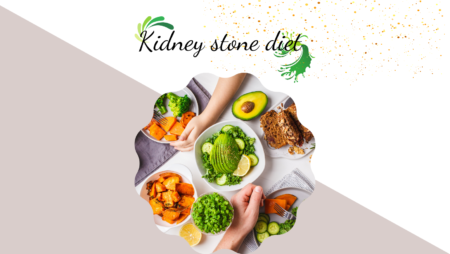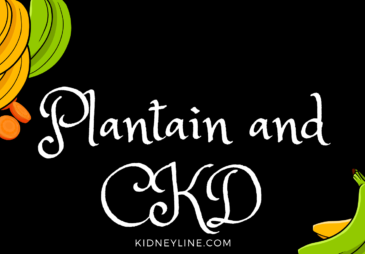Kidney stones are minerals that crystallize in the kidney. Their size varies. Some look like grains of sand, and others look like small stones. Some stones are really huge and cannot pass in urine. So they have to be removed surgically.
Kidney stones cause pain when they lodge and block the ureter or urethra. If you have experienced the agonizing pain from kidney stones before, you likely don’t want to have a repeat. A 1 mm-sized stone can cause some pretty intense pain. Besides, kidney stones can lead to irreversible kidney damage if not treated correctly.
Diet plays a substantial role in stone formation and treatment. In this post, you will learn about 5 foods to avoid if you’ve had kidney stones.
Pepper soup
Pepper soup is a popular African delicacy that cuts across different cultures and countries. If you ask 10 people to give you their recipe for pepper soup, you may get something different. Still, one form of animal protein is always present in every pepper soup recipe. Goat meat pepper soup, fish pepper soup, chicken pepper soup and beef pepper soup are the most popular.
No matter your choice of animal protein, research shows that they increase the risk of forming kidney stones. This is because animal protein is rich in purine, which leads to increased uric acid levels.
If you eat pepper soup, chances are that you will increase the amount of acids in your urine and reduce the amount of citrate in your urine. If your urine gets more acidic, it gets easy for uric acid stones and cystine stones to form. In addition, because citrate is important in preventing kidney stones, the risk of developing kidney stones increases when urine citrate levels fall.
Edikaikong soup
This is a soup that originated among the Efik people of Nigeria but has become a favorite of many people in different cultures. It is a healthy soup made with water leaves and fluted pumpkin leaves. It is chocked full of minerals and vitamins that it’s hard to believe it might have any drawbacks.
The truth is that water leaves are rich in oxalate. This makes them potentially a risk for developing calcium oxalate stones.
Water leaves are rich in calcium, and calcium typically binds oxalate. When calcium and oxalate are present in a meal, the calcium binds oxalate in the gut, thereby reducing the absorption of oxalate into the bloodstream. This means the amount of oxalate that gets into your body when you eat edikaikong is significantly less than the amount in the raw vegetable. So, you don’t have to completely ditch edikaikong soup if you love them, but you may want to cut back on them to lower your risk of kidney stones.
Efo riro
This is another Nigerian delicacy packed full of vitamins and minerals. They are made from spinach. Like water leaves, spinach leaves are also rich in oxalate. The great thing is that cooking also lowers the oxalate content of spinach by nearly 50%.
So should you cut off efo riro? No, you shouldn’t, but you may definitely want to keep an eye on things, especially if you’ve had a calcium oxalate stone before.
Blanching spinach and pouring out the water is a great way of reducing the oxalate content of spinach since some oxalate leach out during the blanching process. The amount of oxalate in vegetables can also be reduced by boiling. But in one study, 100% of soluble oxalate lost by boiling vegetables was recovered in the cooking water. So, even when spinach is boiled while making efo riro, the soluble oxalate simply leaches into the soup.

Okra soup
At this point, I can feel your frustration. When my kids were babies, okra soup was among the first soups they took with garri or semo. It slides down the throat and is a favorite starter soup for many mothers.
But like it or not, okra is one of those vegetables rich in oxalate. And if you’re wondering whether oxalate in vegetables can cause kidney stones, check out this case report describing a 65-year-old woman who formed oxalate stones after taking smoothies made from veggies.
Potash based meals
Several Nigerian delicacies are made from potash, including abacha, nkwobi, ugba and owho soup. In these meals, potash is used to curdle the palm oil used in making the sauce. Although potash is rich in potassium, it is also rich in sodium which is implicated in stone formation.
A high salt diet increases urinary calcium excretion and stone formation in at-risk people. Remember that calcium stones are the commonest kinds of kidney stones and account for 80% of kidney stones seen globally.
What else?
If you are at risk of kidney stones, experts recommend starting stone preventive measures. Preventing kidney stones is particularly important in people who develop their first stone before they turn 30 and those who have multiple stones at their first diagnosis. People with a family history of stroke also have a higher risk of developing kidney stones.
In addition to limiting the consumption of foods that increase the risk of kidney stones, keeping hydrated is key to preventing kidney stones.
Bottom line
Kidney stones can be painful, and they are potentially dangerous. Suppose you have previously had a kidney stone. In that case, it is best to adjust your diet to lower your risk of forming another one. Several foods predispose you to have kidney stones. So, it is crucial to identify foods to avoid with kidney stones. You do not have to completely eliminate these foods. You just have to learn to take them in moderation.



